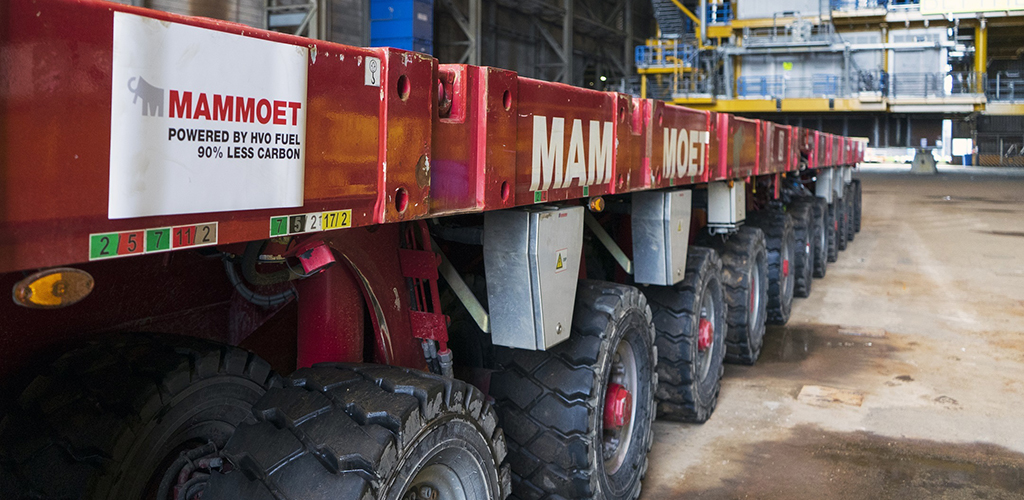Aug 12 | 2021
HVO Another Step Towards Sustainability

Heavy-lift and transportation specialist Mammoet said it recently executed its first operation using low-carbon hydrotreated vegetable oil, or HVO to transport two topsides.
HVO is a completely renewable diesel alternative based on vegetable oils, grease waste and residues from sources such as the food industry and agriculture, in which users may reduce CO₂ emissions by up to 90 percent, compared with conventional diesel.
Mammoet uses the low-carbon HVO in the powerpacks of its self-propelled modular transporters, or SPMTs. In addition to being low carbon, the alternative fuel also gives off fewer direct exhaust emissions, including a reduction in nitrogen oxides.While Mammoet’s worldwide fleet has run on conventional diesel, it has been at the forefront of the adoption of alternative diesel projects, the company said. Starting in 2015, its Netherlands fleet converted to gas-to-liquids, or GTL diesel alternative, a refining process that converts natural gas and other gaseous hydrocarbons into liquid synthetic fuels.
(Mammoet has also become a Breakbulk Events & Media Global Event Partner for 2021.)
 Topsides for HSM Offshore
Topsides for HSM OffshoreDuring the first HVO-fueled operation, Mammoet crews carried out a transport for its customer HSM Offshore. The two topsides – named Southwark and Blythe – were transported as part of the installation of normally unmanned platforms located in UK waters in the southern North Sea.
The topsides, weighing 900 tonnes and 1,150 tonnes, respectively, were moved using 22 axle lines from Mammoet’s standard SPMT fleet. However, this HVO-fueled SPMT transport was a little different, benefitting from a significantly lower carbon footprint.
A History of Innovation
Mammoet’s history of industry innovations in technologies and operations stretches back to 1984, when the company and heavy-duty vehicle specialist Scheuerle jointly launched the first SPMTs, which had a significant impact on the way construction and maintenance projects in heavy industries are executed.
More recently, Mammoet and Scheuerle, a member of the TII Group, have partnered to develop more sustainable trailer technology, such as:
• Trailer Power Assist, an engineered heavy transport solution launched in 2018 to improve transport efficiency and significantly lower carbon footprint. The TPA system uses a 1,000-horsepower engine fitted to a trailer to double pulling force of a primer mover without additional ballast requirements.
• An electric SPMT power pack, currently in testing phase, would allow Mammoet’s worldwide fleet to powered by electricity rather than existing fossil fuel engines.
